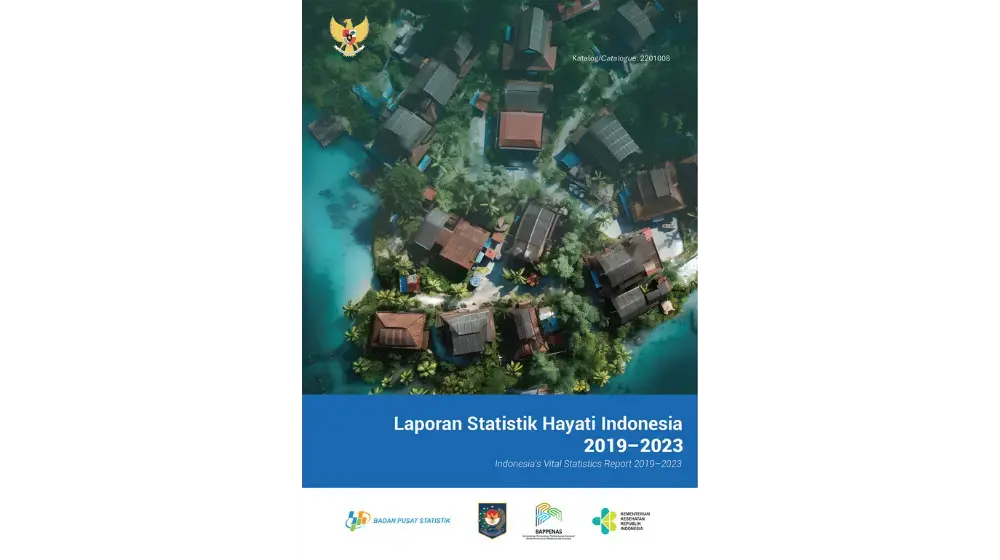 |
| (From left): UNFPA Representative Dr. Zahidul Huque, Head of BKKBN Dr. Sugiri Syarief and Chairperson of Demographic Institute-University of Indonesia Dr. Sonny Harmadi. |
Jakarta, Indonesia: As the world’s 4th most populous country, Indonesia attaches high attention to population issues with focuses on reviving family planning programme, closing gaps for healthcare, education, nutrition, and empowering women, youth and elderly population. However commitment of the newly elected legislators and the future president to population and family planning policies, programmes and budget would determine the country’s course of development in the next 5 years and the welfare of Indonesians.
The next 5-year Mid Term National Development Plan, starting in 2010 focuses on increasing the per capita income, reducing poverty and population growth, increasing health and nutrition status and gender equality. The government also aims to accelerate development of potential resources outside Java.
The draft plan was discussed in a seminar organized by the Demographic Institute of University of Indonesia with participation of experts and representatives of government and Civic Society Organizations.
The draft Mid-Term plan calls for gender equality, slow population growth, healthy population age-structure and distribution and improvement of health status. The plan promotes small family norm and increased age at marriage for women. Continued reduction of infant and maternal deaths is emphasized in the plan.
Achieving these plans also depend on population and gender awareness among the newly elected legislators, decision makers and political leaders. Their commitments are needed for programme and budget allocations to stimulate activities and public awareness at the district and village level.
There has been public pessimism over the capacity of the newly elected members of the House of Representatives for the period of 2009-2014 with 70% of them being new faces. These lawmakers need orientation in matters of population and family planning. Population experts and activists would have to strengthen their advocacy activities to influence policies, said Nina Sardjunani, Deputy Minister of Bappenas. Indonesians will go to the poll to vote for the next President on 8 July.
With a population of 227 million, Indonesia ranks 107 of 177 countries in Human Development Index and ranks 7 among ASEAN’s 10 countries. Maternal mortality dropped from 307 to 228/100,000 live births, but the rate is still high as compared with other ASEAN countries. Majority of Indonesian women work in low paying jobs and those in agriculture and non-agriculture sector earn on average about 2/3rd of the amount earned by their male counterparts.
Improving human capital requires women’s empowerment and strong FP programme. Empowering women in various sectors: education, health, economy and legal aspects will improve their health and social status. The underlying cause of the high maternal mortality and morbidity and the low number of women in formal sectors are due to their powerlessness in making decisions over their own health or for their own self development. While strong FP programme is especially important since the country’s population at reproductive age and those entering this age group are high. “If left unchecked population growth can affect the overall development efforts,” explained Dr. Sugiri Syarief, head of BKKBN. It would be critical to build on the initial achievement of “demographic bonus” and invest more in health and education to continue to benefit from the age-structure of the population.
FP programme is a long-term programme but with many benefits. Head of the Indonesian Obstetricians and Gynecologists Association Suryono Santoso explained that Indonesia has now enjoyed the benefits of successful past FP programme, which was first introduced in 1968. “There have been substantial reductions of maternal and infant deaths and these are the impacts of FP that we enjoy today,” he said.
It’s estimated that successful programme in the 80s had prevented the births of 80 million people up to the year 2000 and around 100 million people until 2009. This is an enormous saving from meeting the needs for schooling, nutrition, and healthcare, among others. If the country’s population growth remains at 1.28% annually, Indonesia population will soar to 400 million in 2050. Studies have linked high population to environmental degradation, clean water shortages, food insecurity, garbage problems, air pollution and high-density slum areas.
15 years after the International Conference on Population and Development (ICPD) in Cairo, the country needs to look at its achievements, challenges, best practices and future actions. The landmark conference shifted development focus from demographic target to comprehensive approach to reproductive health (RH), including adolescent RH and highlighted it as human rights. The country has achieved many of the ICPD milestones but there are still many challenges to overcome, said UNFPA Representative Dr. Zahidul Huque. In order to achieve the remaining goals and targets, the country would have to adopt a major revitalization of its family planning programme in light of the decentralization. This would involve redefining the vision and mission of BKKBN, strengthening its capacity to provide analytical and advocacy work at national and local levels, building leadership capacity of the newly formed district FP agencies, clarifying the adolescent reproductive health sensitivities, ensuring appropriate contraceptive method-mix focusing on unmet need of FP, and developing innovative programme approach at local levels.
Poor communities are in general not aware of the fact that big families have to share their limited resources to all children, making it more difficult to ensure the wellbeing and welfare of each child, compared to families with fewer children. “Reproductive health right goes hand in hand with upholding the rights of the child, meaning that each child should enjoy good education, nutrition and quality health so they can grow up healthy, educated and productive,” said Sri Moertiningsih Adioetomo of the University of Indonesia’s Demographic Institute. Coupled with adequate national investment for services, such awareness among couple and individuals would cut the intergenerational transfer of poverty.
For further information please contact:
Nugroho Nurdikiawan Sunjoyo- UNFPA Communications Officer:
+62 21 3141308 ext. 324
Tags: Population, Family Planning




